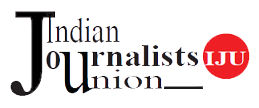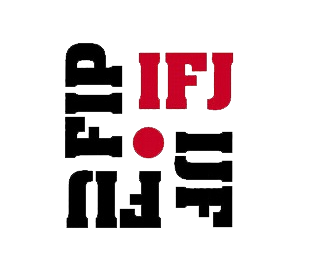~Geetartha Pathak
Amid ongoing focus on data security and misuse of data collected by Aadhaar project in India, comes the Facebook data controversy. After the revelation by Cambridge Analytica (CA) whistleblower Christopher Wylie, controversy has shaken the world. The reference to "SCL's (Strategic Communications Laboratories, the parent company of Cambridge Analytica) past projects in India, in the Wyle expose, hardly proves anything serious against the Congress or any other political party in the country. Wylie likened in a tweet, SCL's presence and work in India to "modern colonialism", which can only be described as SCL's 'brochure of achievements' in India.
The revealed material boasts of the firm holding data from "over 600 districts and 7 lakh villages" and claims it is "constantly being updated". The material released by Wylie show that SCL allegedly influenced elections in India. It claimed that SCL worked in Uttar Pradesh (2012, 2011, 2007), Bihar (2007), Kerala (2007), West Bengal (2007), Assam (2007), Jharkhand (2007), Madhya Pradesh (2003), Rajasthan (2003) and also, the national elections of 2009 where its "proprietary data collection methodologies" was used by "a number of Lok Sabha candidates" to form campaigning strategies.It claimed that its data analysis and behavioral profiling were key to win swing states.
However, how the SCL can work in India since 2003 when SCL is formally incorporated in Indian entity Ovleno Business Intelligence (OBI), in 2011 only. There is also no proof at this point in time that Cambridge Analytica or SCL signed a contract with any Indian political party. However on the basis of all these vague documents the BJP and the Congress have engaged in a war of allegations and counter allegations. Engaging consulting and public relations companies in elections and campaigns is nothing new in politics. There are many top consulting and PR companies in the world whose services were used by many influential political parties of different countries. One of such top consulting group is US based Ketchum PR.
This company's clients over the years included IBM, Delta Air Lines and Russian President Vladimir Putin. The NDA government under the leadership of Atal Bihari Vajpayee engaged Grey Worldwide group, a New York headquartered consulting company having 432 offices across 6 countries, apparently to promote India in the world but targeting the 2004 general elections. "India Shinning" was originally the theme for 60 second video made by the BJP led government to highlight the success of the government. The phrase was later widely used in election campaign by the NDA.
The Election Commission banned the slogan following a complaint lodged by the Congress till the elections were over. However NDA used the slogan extensively without caring the ban on use of the two words. Notably Ravi Shankar Prasad was first law and justice minister and then he was shifted to Information and Broadcasting Ministry in the Vajpayee government. It spent US$ 20 million on national television and newspaper advertisements featuring the India shinning slogan. This foreign consulting and PR company has entangled in a bitter controversy in 2016 for creating a hoax app that claimed to use crowd sourcing to help defuse the refugee crisis in Mediterranean sea which was eventually pulled down by the Apple store.
Crores of rupees of public money was wasted in a bid to retain power in the 2004 Lok Sabha elections. It is impossible to start a political or election campaign without gathering information of various sections of people, their cultural, religious, linguistic and other characteristics. The Grey group, which is a foreign consulting company collected all such data of individual Indian and social groups and accordingly the company designed the campaign targeting its goals. Being an important Union Minister Ravi Shankar Prasad was very much part of that campaign. If the Congress or the BJP opts for engaging a global consulting and PR company for its poll campaign, it is their outlook. On the other hand it also does not matter whether the illegal collector of data is a foreigner or a native one because it finally breaches the right to privacy of citizens and set it open for abuse. The issue of illegal collection of peoples' data should not be merely relegated to an electoral issue.
The BJP engaged a number of advertising agencies namely Soho Square, Ogilvy and Mather, and media buying agency Madison World in the campaign for 2014 Lok Sabha elections and thereafter in elections in some of the states. Looking at the extravaganza in campaigning one can easily guess the burgeoning budget of the BJP in the recently held state elections. The big consulting and PR companies share much of such big poll budget of the BJP. The PR companies on behalf of the BJP have engaged professional teams in managing the social media which is working round the clock to continuously churn out quirky spoofs. A huge amount of money has been invested by the ruling party in manning the internet and social media. This money will never be reflected in their poll expenditure accounts. The fact is that the EC has no rules to keep an effective check on it.
The code of conduct, for instance, applicable to mass media like newspapers and television channels does not apply to advertising on social media. Although the political parties are regulated by the Election Commission of India (ECI) it does not have the technical competence to monitor the use of data by such Apps. Neither the telecom regulator TRAI has been entrusted to monitor that all the political parties adhere to ground rules when it comes to data security and privacy of voters or citizens. Considering the low penetration of social media in India comparing with other advanced countries the data mining and its electoral manipulations at present may not spectacularly impact on the election result. The social media penetration in India is as low as 14.64 per cent of the total population in 2017 which is estimated to grow to 18.86 per cent in 2019 against 81 per cent in United States in 2017. However, with increasing connectivity and technology improvement the social media and internet users in India are expected to grow rapidly.
Without a robust data protection and stringent social media regulation mechanism the republic will be ruled by the hackers and dataminers. Now another controversy makes the round involving the NaMo app. The row erupted after a French app developer and cybersecurity researcher claimed on Twitter that the NaMo app was sending user data to a third party, a USbased analytics company called CleverTap, allegedly without users' permission apparently violating the terms of the Google Playstore. The app's privacy policy was then quickly changed. Collecting private information including biometric data of the citizen by state, non state actors and foreign firms is violation of right to privacy of the people. Now theAadhaar matter is being heard in the Supreme Court. US whistleblower Edward Snowden has rightly commented on twitter “It is the natural tendency of the government to desire perfect records of the private lives. History shows that no matter the laws, the result is abuse”.
A French hacker Robert Baptiste who is known by the name of Eliot Anderson on Twitter recently has posted a video how one can bypass the password protection of the Aadhaar Android app in just one minute. However the Aadhaar authority UIDAI has junked the hacker's claim and explained that by only knowing one's Aadhar data without knowing biometric data no one can impersonate and harm anybody. The UIDAI authority indirectly conceded that Aadhaar data is accessible to anybody only biometric data is not.
The biometric data can be misused easily by the authority to track any person or a political opponent of the ruling entity. The iris scan has all the potential of tracking a man fast remotely. Civil liberties campaigners have voiced privacy concerns that future irisscanning technology could be developed which will allow people to be tracked covertly (to a limited distance ) without either their knowledge or cooperation. A despot regime can easily use the iris scanning technology to trace an opponent to politically or physically annihilate him/her.
The abuse of personal data posted by the individuals in the Facebook is always big concern, which the Facebook is trying to handle. The social media users have increasingly become aware of the abuse of personal data and avoiding keeping sensitive data in their social media accounts. Although India does not have a data protection law, the problem can to some extent be dealt with the existing provisions of IT Act.
However a strict data protection law is needed to effectively deal with the problem. The union IT minister may take initiative in enacting such a data protection law and a campaign to sensitize users and all other stakeholders on social media on privacy issue instead of unnecessarily wasting energy by politicizing the issue.



